Content personalization emerges as an invaluable tool for marketers aiming to establish meaningful connections with customers. In the contemporary landscape, customers prefer tailored content and actively expect it.
While the concept could be more groundbreaking, the modern iteration of content personalization distinguishes itself by relying on customer data and technology. This refined approach has proven to be more effective than earlier methods. The cornerstone of any content personalization strategy lies in constructing customer profiles and segmenting audiences, with a wealth of customer data forming the foundation for enhanced efficacy.
The Advantages of a Content Personalization Strategy:
Leading marketing teams are pivoting away from generic campaigns and gravitating towards personalized 1:1 campaigns for several compelling reasons:
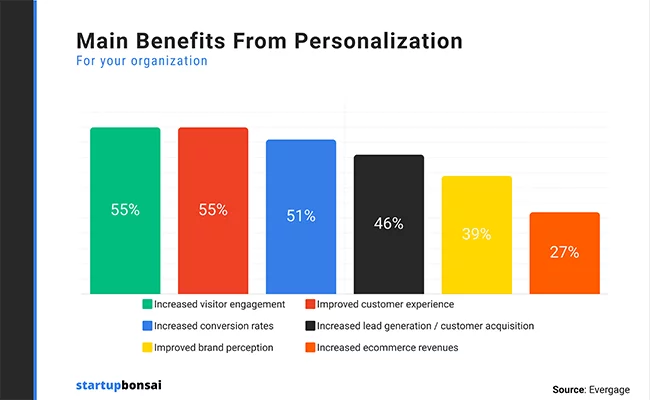
- Boost Engagement: Content personalization acts as a covert weapon in a marketing landscape dominated by mass communication. Craft content that resonates with the unique interests of your audience, and you capture their attention. The effectiveness of this strategy is rooted in a fundamental truth – people yearn for relevance. When content aligns with specific needs and interests, it grabs and maintains attention. Personalized content transcends mere visibility; it fosters a more profound connection that shields against competing marketing efforts.
- Promote Brand Loyalty and Retention: Brands that cultivate a devoted following often leverage content personalization to make customers feel valued and understood. Modern marketing is no longer a one-sided conversation; it necessitates a two-way dialogue. By tailoring content to individual needs and interests, brands are committed to listening and responding to customer behavior. This approach extends beyond product or service promotion, showcasing an intent to build enduring relationships.
- Increase Conversion Rates: The personalized, conversational approach to marketing not only fosters loyalty but serves as a potent tool for driving consumer action. When content is personalized and relevant, it becomes persuasive. Present the right product to the right customer at the opportune moment, and the likelihood of conversion significantly increases. A case in point is Sally Europe, which witnessed substantial results through this approach, including a 43% YoY increase in email-attributed web sales growth.
In a market where 93% of consumers receive irrelevant marketing communications, and 44% are willing to switch to brands offering better personalization, implementing personalized content is a transformative opportunity. It provides a distinct means to stand out, expand your audience, and yield tangible business results.
The Significance of Data in Tailoring Content:
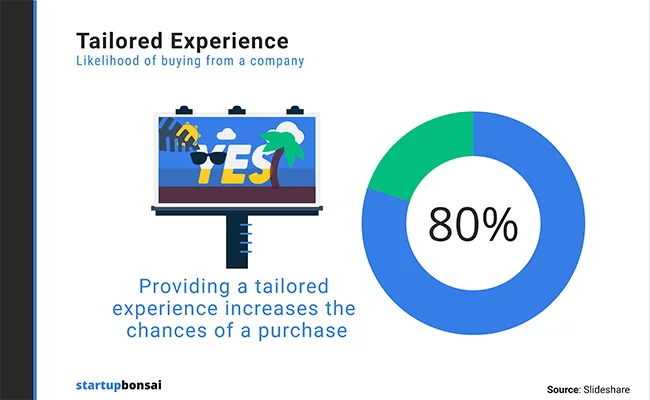
- Capture Customer Data: Data serves as the linchpin for content personalization. Understanding your customers’ interests, online shopping behavior, and past purchases requires insightful data. Delivering meaningful 1:1 experiences necessitates a profound understanding of your customers, a feat achievable at scale through zero- and first-party data. It’s crucial to provide compelling value exchanges when collecting data, as customers will likely part with their information with good reason. Identify opportune moments in the customer journey, such as during newsletter sign-ups or post-purchase interactions, to request data. After acquiring customer data, the onus is on delivering a superior, uniquely tailored experience that sets your brand apart from competitors.
- Consolidate, Enrich, and Analyze Your Data: The essence of a successful personalization strategy lies in capturing data and creating a comprehensive 360-degree view of customers. Overcoming data silos is a critical challenge. A cohesive customer view is necessary for the creation of genuinely personalized content. Breaking down these silos is paramount. Beyond being a data repository, a customer engagement platform serves as the engine driving personalization. By integrating data streams through such a platform, efficient data consolidation and enrichment occur, resulting in a unified, comprehensive customer view and actionable insights. These insights are instrumental in crafting personalized content that resonates personally, fostering a sense of understanding and value.
- Act on Your Insights: A customer engagement platform facilitates the unification of first-party data, enabling the construction of precise customer profiles. Acting on these insights is the next crucial step to establish consistent, personalized engagements throughout the customer lifecycle.
- Several actionable methods to leverage data for personalized engagements include:
- Segmented Email Campaigns: Use customer data to segment email lists and tailor messaging based on past purchases, browsing behavior, or engagement levels.
- Personalized Web Channel Experiences: Customize the website experience for returning visitors, displaying content, offers, and product recommendations based on previous interactions.
- Customized Mobile Push Notifications: Utilize customer data for personalized push notifications on mobile apps, notifying users of relevant items or sales.
- Tailored Customer Service: Connect customer service teams with marketing data for more personalized service experiences, incorporating browsing behavior, product affinity, and past orders.
- Content Personalization in Direct Mail: Extend personalization to traditional channels like direct mail, sending postcards or catalogs tailored to the customer’s purchase history or expressed interests.
Brands that Implement Content Personalization Strategy:
1. Beauty Pie – Elevating Retention through Personalization:
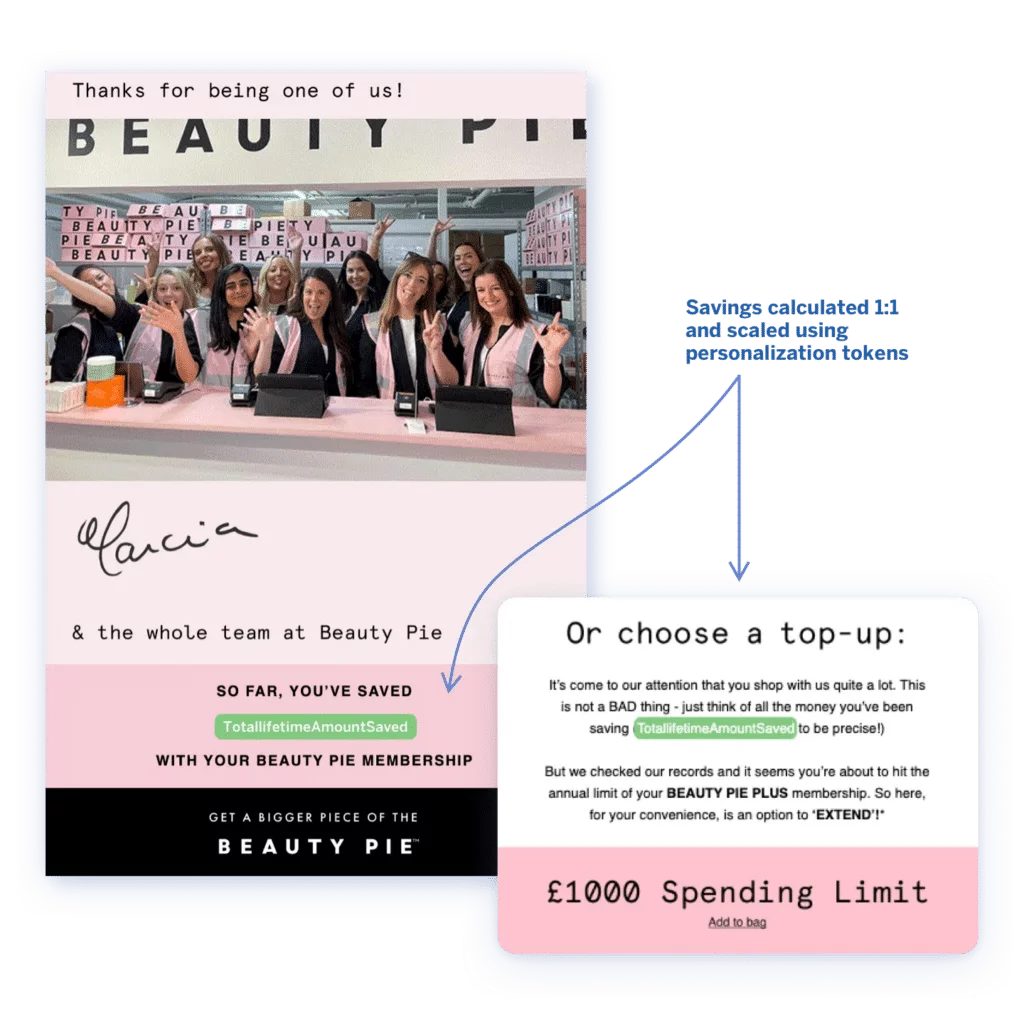
Beauty Pie, a trailblazing cosmetics company operating as a luxury beauty buyers’ club, revolutionizes the accessibility of high-quality skincare and makeup. Focused on retaining its membership base, Beauty Pie strategically utilizes customer data, considering factors like the last shopping activity and membership start date. By implementing personalized nudges, Beauty Pie showcases members’ spending history, reinforcing its Unique Selling Proposition (USP) and highlighting the savings achieved through membership. This tailored approach effectively mitigates churn and strengthens brand loyalty.
2. Happy Socks – Global Personalization for Enhanced Loyalty:
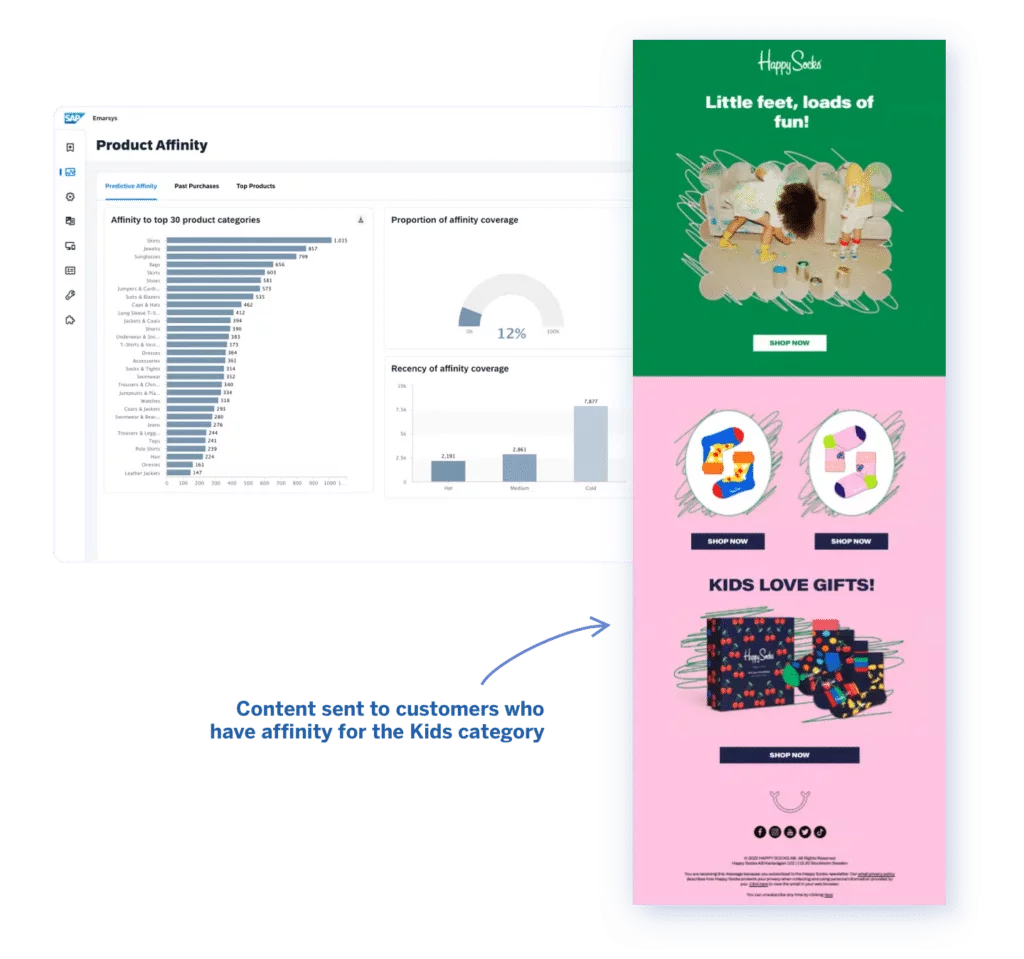
Renowned for its vibrant and creative designs, Happy Socks infuses everyday essentials with color and innovation. Happy Socks employs a personalized content strategy to drive purchases and loyalty across diverse regions. Leveraging Emarsys’ Predict tool, the brand identifies key customer interests based on web and purchasing behavior, tailoring personalized product recommendations accordingly. Additionally, AI-driven product recommendations are fine-tuned to the SKUs available in each customer’s region down to the nearest warehouse. Through personalization tokens and Emarsys Scripting Language (ESL), Happy Socks seamlessly adjusts content to individual language, currency, and location, enhancing the overall customer experience.
Learn about content decay here.
3. Nike HK – Elevating Customer Engagement with Data Insights:
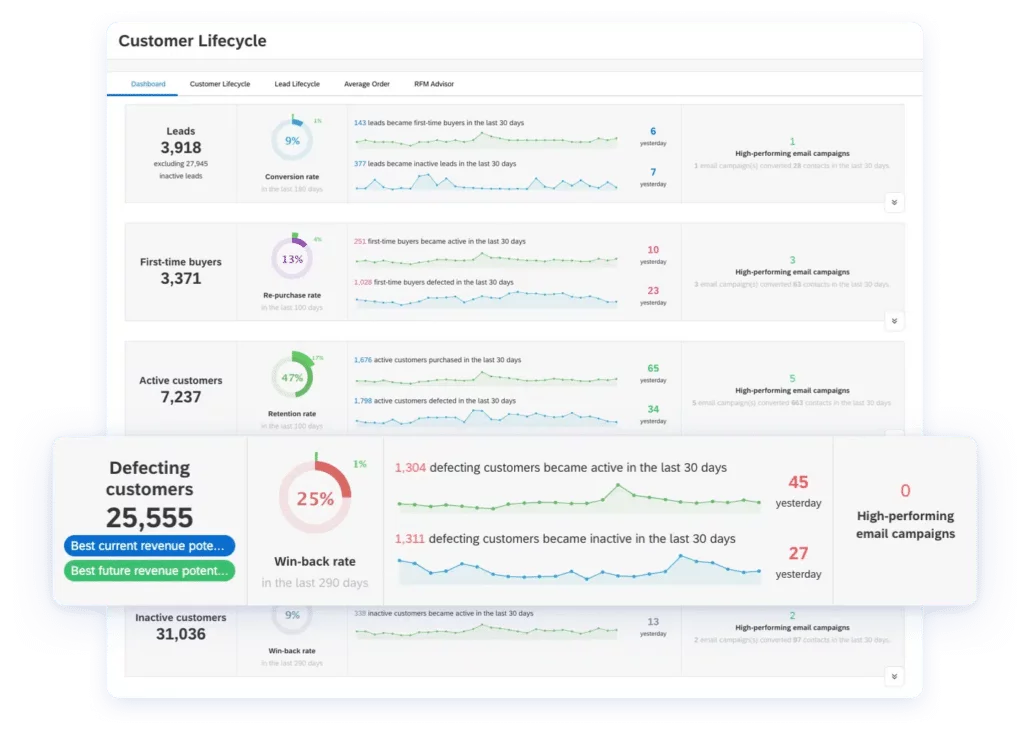
As a globally recognized brand, Nike maintains an extensive network of stores, including Nike HK in Hong Kong. Seeking to enhance customer interactions in this specific market, Nike HK harnesses the power of data insights. Using Emarsys AI, the company effectively segments customers based on purchase behavior, lifecycle stage, and churn rates. This targeted approach significantly increases content relevance, resulting in an impressive 8% improvement in the purchase rate. Partnering with Emarsys provides Nike HK with a comprehensive understanding of its customers, enabling personalized content delivery during key seasonal campaigns like Christmas and Lunar New Year, fostering stronger connections, and driving engagement.
4. Amazon – Personalizing the E-Commerce Giant:
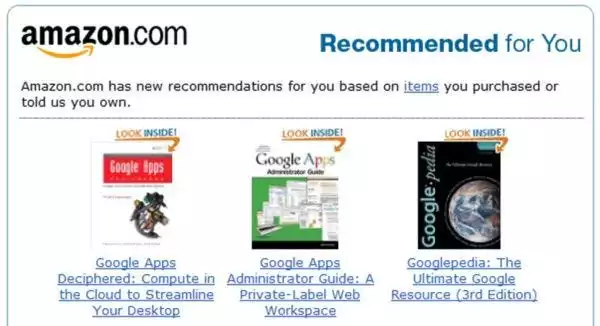
Amazon, a global e-commerce giant, employs sophisticated personalization techniques to enhance customer experience and drive sales. The platform analyzes customer browsing and purchase history to offer personalized product recommendations, tailored email campaigns, and dynamic homepage content. By leveraging vast customer data, Amazon creates a highly customized shopping journey, leading to increased engagement, customer satisfaction, and, ultimately, higher conversion rates.
5. Netflix – Tailoring Entertainment for Every Viewer:
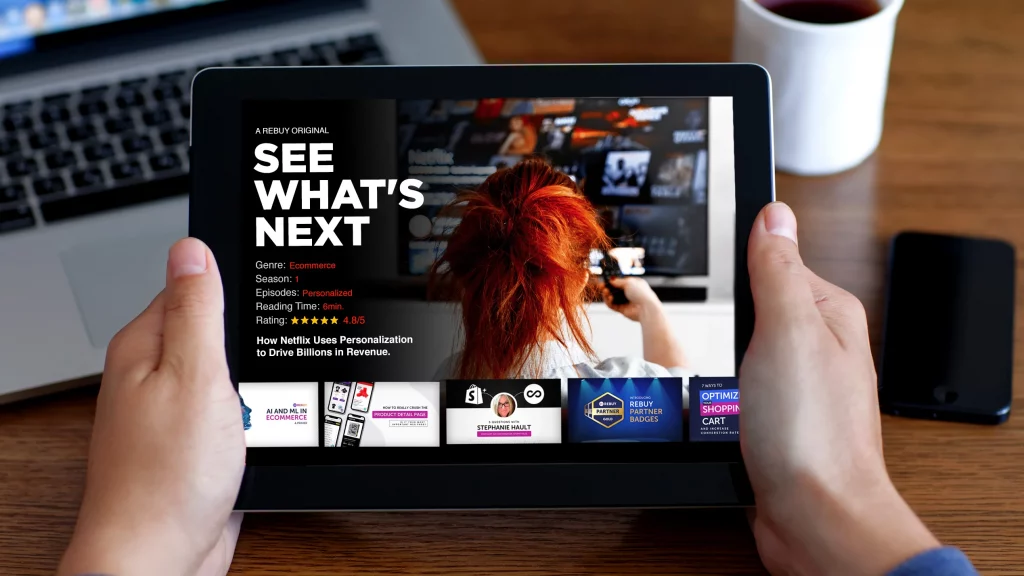
Netflix, a leader in the streaming industry, is renowned for its personalized content recommendations. By analyzing viewing history, search patterns, and user preferences, Netflix’s algorithms suggest movies and TV shows tailored to individual tastes. This level of personalization keeps users engaged and plays a pivotal role in customer retention and subscription renewal, showcasing the power of data-driven personalization in the entertainment sector.
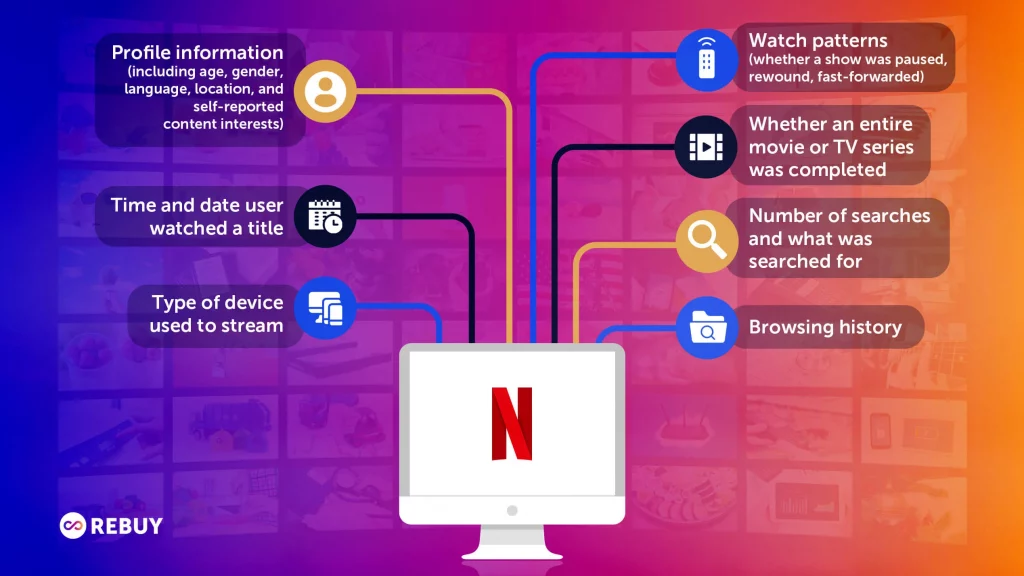
6. Spotify – Crafting Unique Music Experiences:
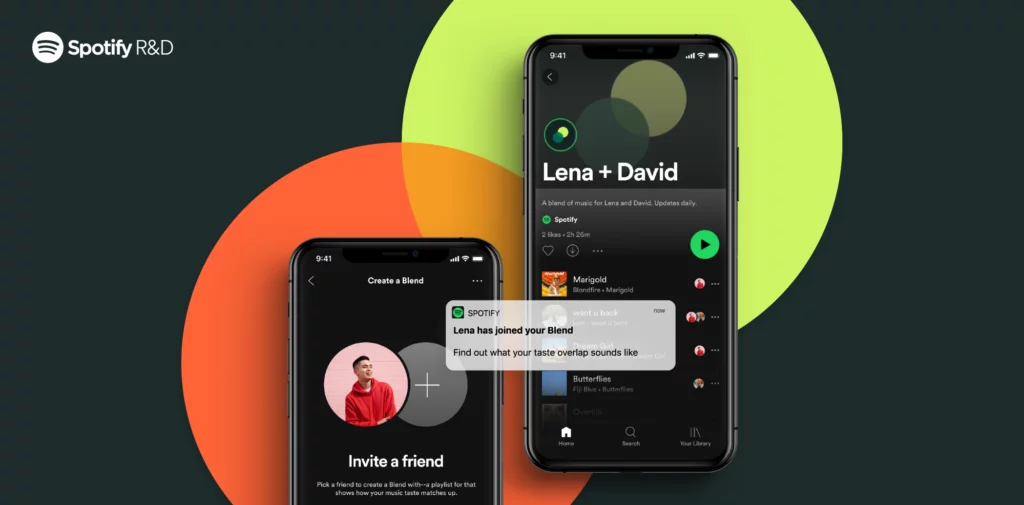
Spotify, a music streaming platform, leverages user data to curate personalized playlists, such as Discover Weekly and Daily Mixes. Analyzing listening habits, favorite genres, and user-generated playlists, Spotify ensures that each user’s music recommendations are unique. This personalized approach keeps users engaged and introduces them to new artists and tracks, showcasing the impact of data-driven personalization in the music industry.
7. Starbucks – Brewing Personalized Rewards:
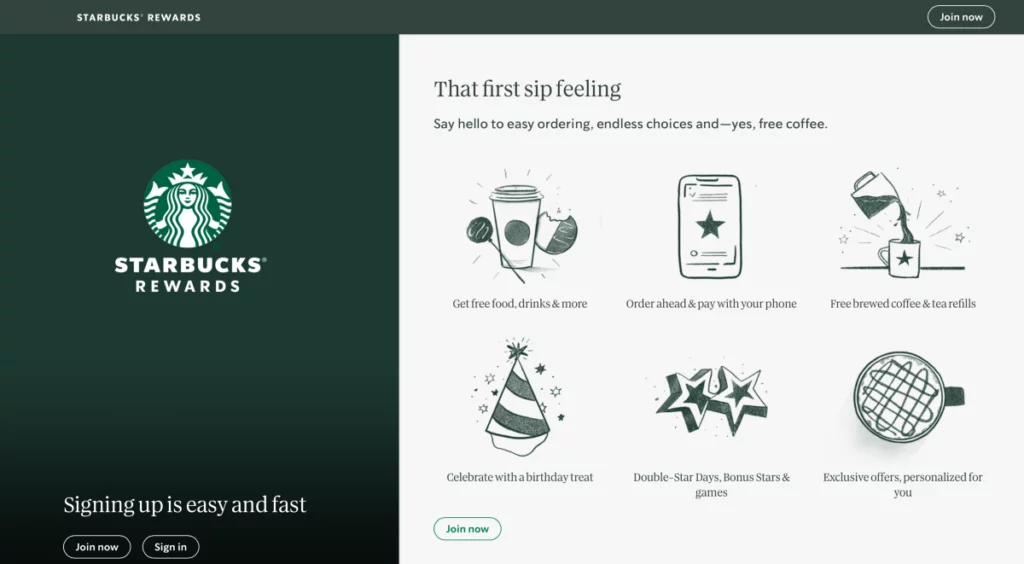
Starbucks, the global coffeehouse chain, utilizes a personalized rewards program through its mobile app. By tracking customer purchase history and preferences, Starbucks offers personalized rewards, discounts, and customized drink suggestions. This strategy enhances the customer experience and encourages repeat visits and brand loyalty by tailoring incentives to individual preferences.
These examples illustrate how leading brands across various industries leverage data-driven personalization to create tailored experiences, drive customer engagement, and ultimately boost business outcomes.
The Evolution of Personalization: Unleashing the Power of Predictive Analytics
The evolution of personalization in marketing now embraces predictive analytics, where data, statistical algorithms, and machine learning converge to anticipate future outcomes based on historical data. Leading platforms like Emarsys have pioneered the integration of predictive analytics, empowering brands to harness the complete potential of data-driven marketing.
Armed with self-learning algorithms and predictive analytics capabilities, AI marketing platforms like Emarsys revolutionize the landscape by enabling brands to discern the content most relevant to individual customers. These platforms go beyond content customization; they predict the optimal timing and preferred channels for content delivery, maximizing its impact.
The implications of predictive analytics for customer lifecycle marketing are profound. By augmenting customer profiles with insights into conversion and churn probabilities, businesses gain the foresight to craft highly personalized 1:1 campaigns. These campaigns strategically engage customers, prompting meaningful actions at pivotal moments in their journey.
Tools Shaping the Future: Emarsys and Beyond
1. Emarsys:
Emarsys stands at the forefront, exemplifying the integration of predictive analytics into marketing strategies. Its AI-driven platform empowers brands to analyze customer behavior, predict preferences, and orchestrate personalized campaigns that transcend traditional segmentation.
2. Google Analytics:
A versatile tool, Google Analytics incorporates predictive metrics to foresee user behavior and preferences. This empowers marketers to tailor their strategies based on anticipated user actions, optimizing the impact of marketing initiatives.
3. Salesforce Einstein:
Salesforce Einstein, an AI-powered tool, seamlessly integrates predictive analytics into customer relationship management. Predicting customer preferences and behavior aids in tailoring marketing efforts and nurturing customer relationships.
4. Adobe Target:
Adobe Target utilizes predictive analytics to anticipate user preferences, enabling marketers to deliver personalized content and experiences across various digital channels. This tool empowers brands to create seamless and tailored customer journeys.
5. Optimizely:
Optimizely leverages predictive analytics to optimize user experiences. Marketers can experiment with personalized content and refine strategies to enhance customer engagement and satisfaction by anticipating user interactions.
The integration of predictive analytics into marketing defines the present and shapes the future. As brands embrace these innovative tools, they unlock the potential to meet and anticipate customer expectations, ushering in a new era of hyper-personalized and impactful marketing strategies.
Conclusion:
The power of tailoring content to individual preferences has proven to be a catalyst for increased engagement, brand loyalty, and ultimately, conversions. As customers continue to seek personalized experiences, businesses that harness the potential of content personalization stand to gain a competitive edge.
Incorporating data-driven insights, predictive analytics, and advanced tools, marketers can now deliver highly relevant and timely content to their audience. From personalized email campaigns to website content tailored to user preferences, the possibilities are vast. The success stories of brands implementing content personalization underscore its impact on customer satisfaction and business growth.
FAQs on Content Personalization:
What types of content can be personalized?
Content personalization extends to various digital assets, including website content, emails, product recommendations, advertisements, and more. It can be applied across multiple channels to create a seamless and personalized user experience.
Are there privacy concerns associated with content personalization?
Privacy is a crucial consideration in content personalization. It’s important for businesses to be transparent about data collection practices, obtain user consent, and adhere to data protection regulations. Respecting user privacy builds trust and ensures a positive customer relationship.
Can content personalization be automated?
Yes, content personalization can be automated using artificial intelligence (AI) and machine learning algorithms. These technologies analyze user behavior and preferences, allowing for real-time adjustments to the content presented to each user.



